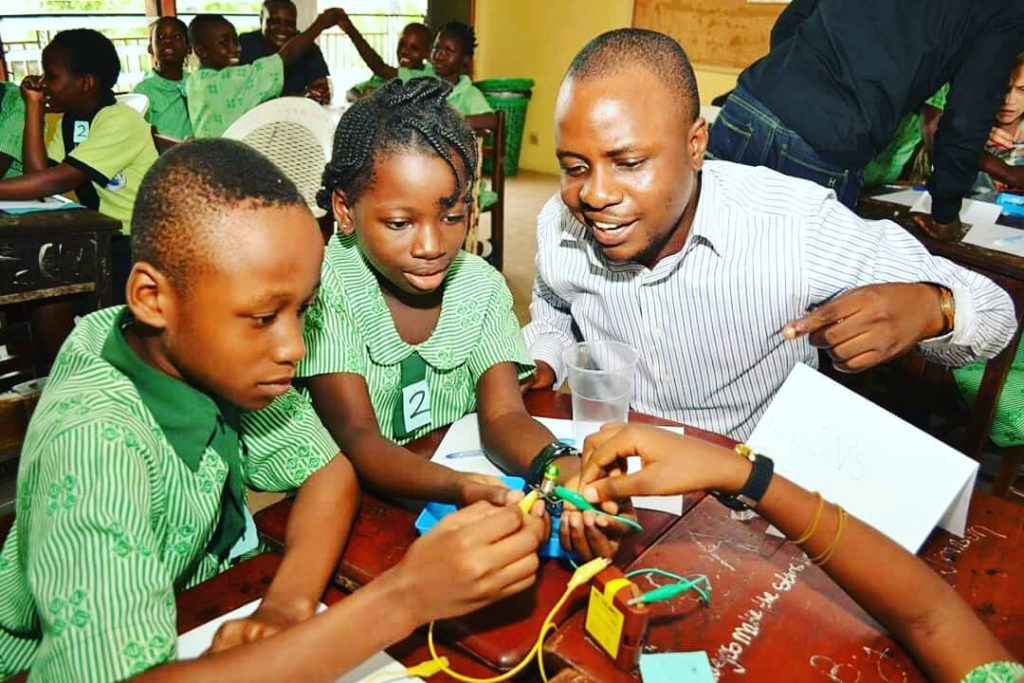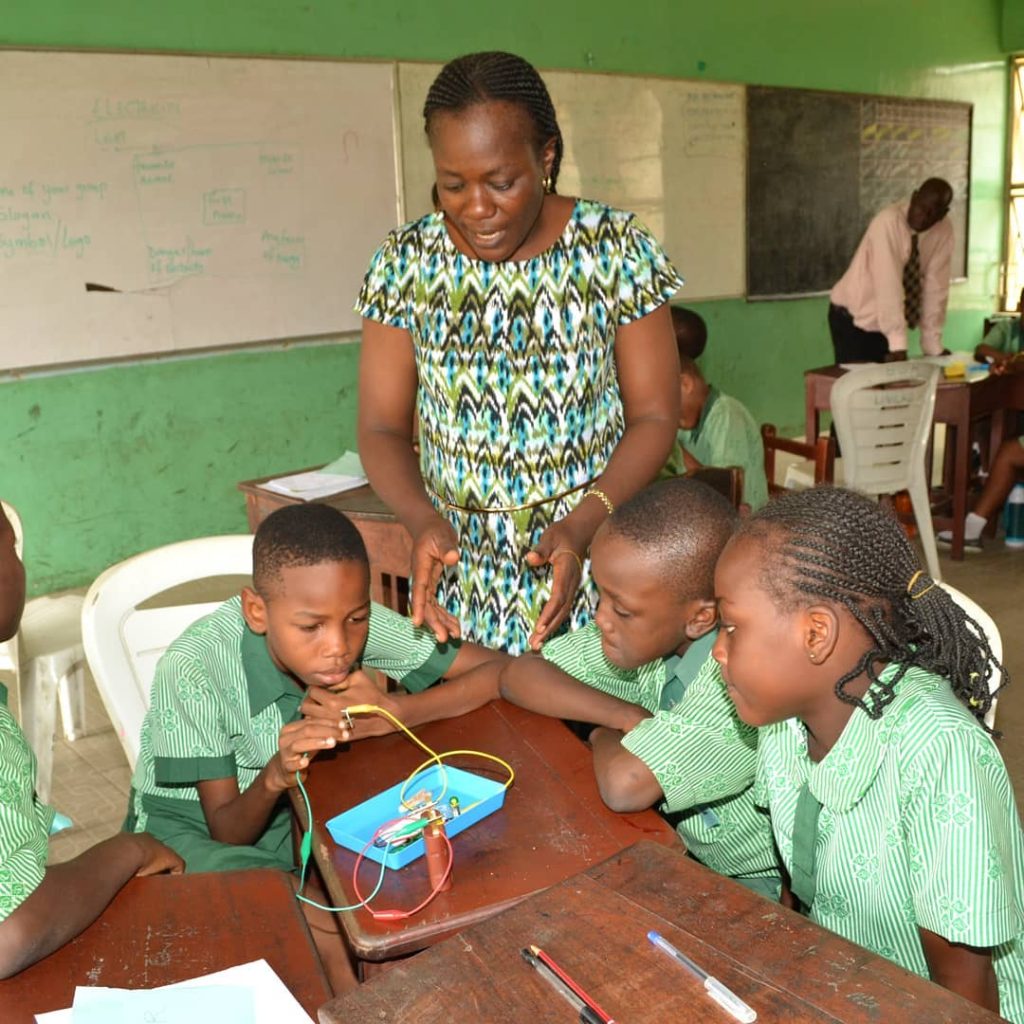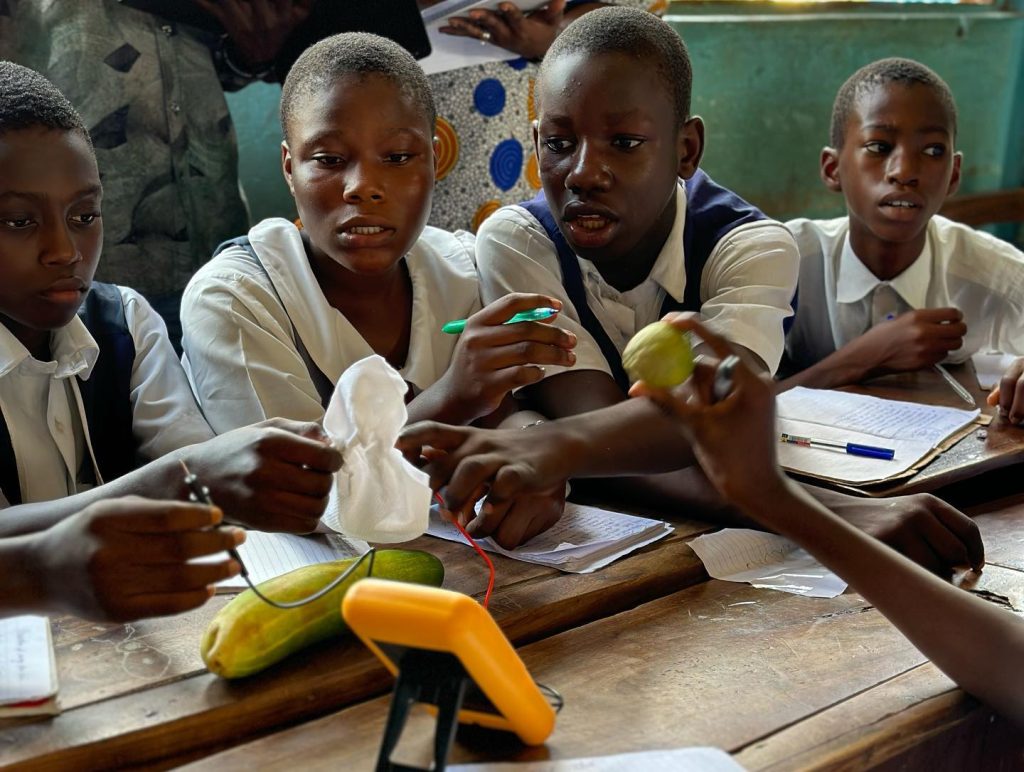The Importance of Experiential Learning in STEM: The Role of Experimento.

In a world that increasingly depends on science, technology, engineering, and mathematics (STEM), finding innovative ways to teach these subjects has become essential. Experiential learning—a hands-on, interactive approach to education—has proven to be one of the most effective ways to build both practical and theoretical knowledge. By bridging the gap between understanding concepts and applying them, experiential learning prepares students to think critically, adapt creatively, and tackle complex problems. This method aligns with the goals of the Empowering Africans through Education Initiative (EAE) and its Experimento project, where empowering students with hands-on STEM skills and knowledge is at the heart of its mission.
What is Experiential Learning?
Experiential learning, often referred to as “learning by doing,” allows students to learn through first-hand experience. This could involve conducting experiments, working on team-based projects, or participating in fieldwork and internships. Rather than passively receiving information, students actively engage with materials, interact with peers, and face real-world challenges. This approach, which Experimento adopts, ensures that students aren’t only observing STEM concepts but truly understanding and applying them in ways that make an impact on their communities.
How EAE’s Experimento Project Brings Experiential Learning to Life
EAE’s Experimento project provides a real-world example of the power of experiential learning in STEM. The project engages students in practical, community-focused STEM activities, allowing them to develop critical problem-solving skills and learn from real-world applications. Through hands-on experiments and workshops, Experimento ensures students aren’t simply learning about scientific concepts in isolation—they’re seeing how these concepts apply in real life. By fostering an environment where students can experiment, question, and collaborate, EAE’s Experimento project brings STEM education into students’ lives, making it relevant and meaningful.



Why Experiential Learning Matters in STEM and How EAE is Making a Difference?
- Enhances Understanding and Retention: Through Experimento, students engage in activities that allow them to see the “why” and “how” of what they’re learning. This strengthens retention and comprehension, as students remember and understand concepts better when they see them in action.
- Develops Critical Thinking and Problem-Solving Skills: In STEM, complex problems often don’t have simple answers. Experiential learning in Experimento challenges students to think critically and creatively, fostering resilience and adaptability. These problem-solving skills are invaluable for their future education and career paths.
- Bridges the Gap Between Theory and Practice: Experimento effectively addresses the gap between theoretical knowledge and practical application. Students work on projects that align with real-world issues, from environmental science to engineering, making STEM subjects relevant and tangible.
- Boosts Collaboration and Communication Skills: Through the Experimento project, students engage in teamwork, fostering skills in collaboration and communication. These skills are crucial in STEM fields, where projects often require team-based problem-solving and clear communication.
- Increases Motivation and Engagement: Experiential learning makes STEM subjects more engaging and relatable. Through Experimento, students are actively involved in projects that feel meaningful, as they can directly see the impact of their work in their communities.
By incorporating experiential learning into STEM education through Experimento, EAE is not just teaching STEM subjects; it’s shaping Africa’s future. The skills and knowledge students gain through hands-on projects are essential for a generation that will tackle issues unique to their communities and the continent. EAE is empowering these young minds to become innovators, problem-solvers, and leaders who will carry Africa forward.
Conclusion
EAE’s Experimento project exemplifies how experiential learning transforms STEM education, preparing students not only for exams but for life. By investing in experiential learning initiatives like Experimento, we are empowering young Africans with the knowledge, skills, and confidence to take on some of the world’s most pressing challenges. With initiatives like these, EAE is not only inspiring curiosity and innovation but is also building a foundation for Africa’s future in STEM—one student at a time.